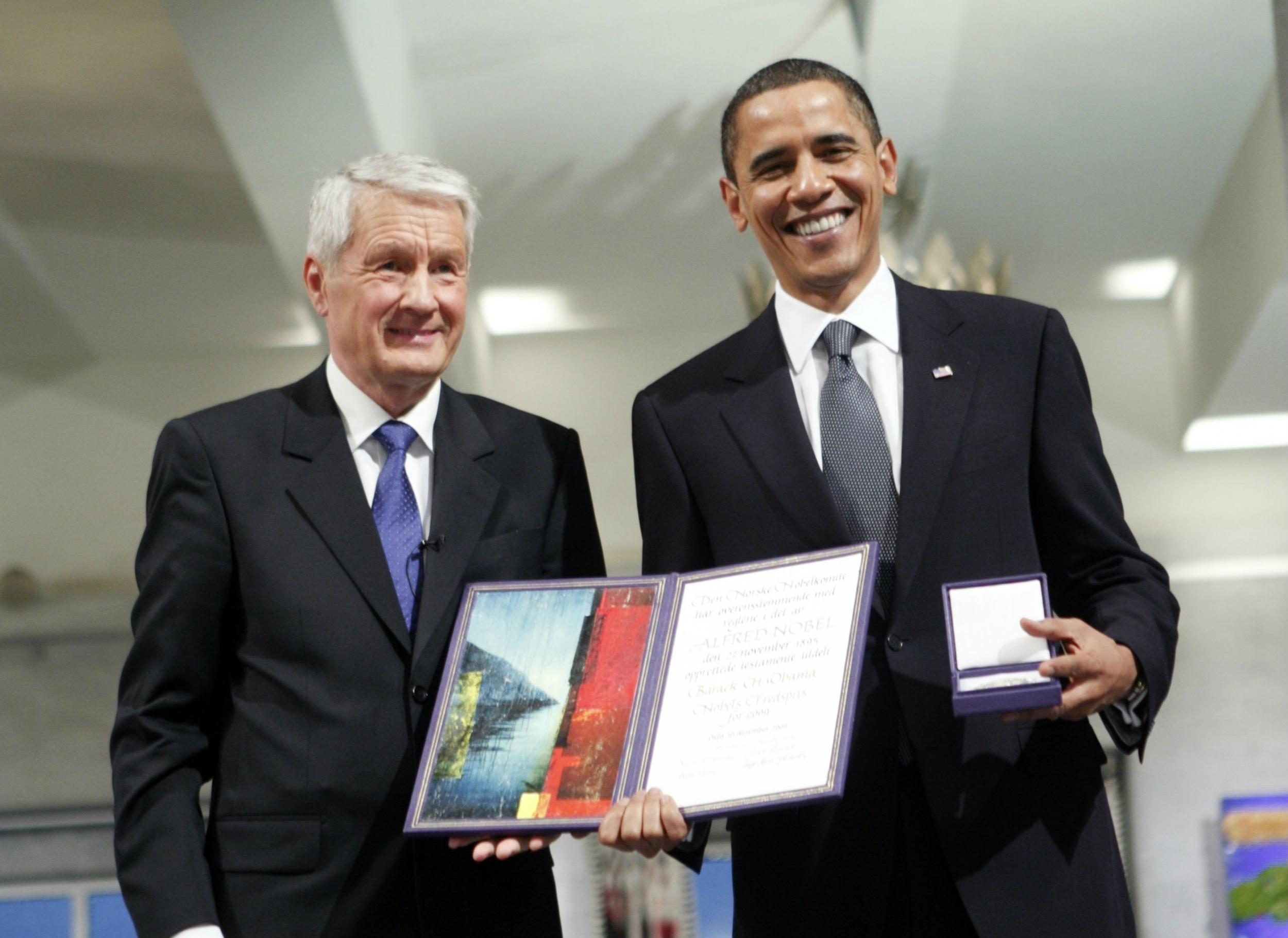Nobel Peace Prize 2018: The award’s most controversial winners
Aung San Suu Kyi, Yasser Arafat and Henry Kissinger among recipients most roundly criticised but some even more startling names among the shortlists
The winner of the Nobel Peace Prize 2018 will be announced at 11am on Friday 5 October.
The honour, given to those who have done most to further the cause of peace around the world over the previous year, has been presented 98 times since 1901, 104 times to individuals and 27 times to organisations.
Two groups have been awarded the prize on multiple occasions: the Red Cross won it in 1917, 1944 and 1963 and the Office of the United Nations High Commissioner for Refugees was honoured in both 1954 and 1981.
The first woman to be decorated was Baroness Bertha von Suttner in 1905, author of the influential anti-war novel Lay Down Your Arms (1889) and founder of the Austrian Peace Society in 1891, while the average age for a winner is 60.
Last year, the International Campaign to Abolish Nuclear Weapons (ICAN) received the gold medal and the nine million Swedish krona (£770,000) prize money “for its work to draw attention to the catastrophic humanitarian consequences of any use of nuclear weapons and for its ground-breaking efforts to achieve a treaty-based prohibition of such weapons”.
Despite its, well, noble intentions, the prize has often proven controversial, the recipients not always unanimously agreed upon and sometimes found wanting in their subsequent actions.
While few could argue with the likes of Jimmy Carter, Kofi Annan, the Dalai Lama, Elie Wiesel and Mother Theresa being honoured, others have been much more divisive.
The news on Tuesday that Myanmar leader Aung San Suu Kyi will not be stripped of the prize she was awarded in 1991 despite her country’s treatment of the Rohingya Muslims, forced to flee domestic persecution to Bangladesh, is only the latest example.
Even ICAN’s award was questioned in some quarters as the bomb has not yet been eradicated from the world stage, prompting committee chair Berit Reiss-Andersen to defend the gesture as “an encouragement to all players in the field”.
In 2012, the decision to give the award to the European Union for its six decade contribution “to the advancement of peace and reconciliation, democracy and human rights in Europe” was heavily criticised given that several countries within the bloc maintained arms manufacturing industries and because its handling of the contemporary Greek debt crisis left many people’s lives the worse for the intervention.

Giving the prize to Barack Obama in 2009, the year of his inauguration as US president, was denounced as premature given that the new incumbent had had minimal opportunity to “strengthen international diplomacy and cooperation between peoples” so soon into his first term.
The committee was accused of using the accolade as a thinly-veiled attack on the outgoing George W Bush and its receipt unhelpfully bolstered Republican characterisations of President Obama as aloof and superior.
In 1994, Palestinian leader Yasser Arafat and Israel’s prime minister Yitzhak Rabin and foreign Shimon Peres were all presented with medals for their work on the Oslo Peace Accords. A member of the committee, Kare Kristiansen, resigned over Arafat’s award in protest at the violence of the First Intifada.

Russian premier Mikhail Gorbachev was rewarded for helping bring a close to the Cold War in 1990 but was subsequently criticised for his deployment of tanks to rein in the independence of the Baltic states following the collapse of the USSR.
US secretary of state Henry Kissinger was jointly awarded the 1973 prize with revolutionary Le Duc Tho for agreeing a ceasefire in the Vietnam War. Le Duc declined the honour, accusing Washington of breaking the pact, while Kissinger was further criticised for ordering the bombing of Hanoi during the protracted conflict.
Undoubtedly the most shocking names shortlisted – although none was ever actually handed the prize – are those of Adolf Hitler, Benito Mussolini and Joseph Stalin, all of whom were considered.
Hitler’s nomination came from Swedish MP Erik Gottfrid Christian Brandt, who later said his letter recommending the Fuhrer as “the Prince of Peace on earth” was actually intended to be satirical, sarcastic and an act of provocation to Nazi Germany and was only added to the shortlist in earnest by mistake.
Hitler, for his part, loathed the Nobel committee after it gave the 1935 prize to anti-fascist critic Carl von Ossietzky and had banned all loyal Germans from accepting it.
Mussolini meanwhile received two endorsements, now lost to history, while Stalin was nominated in 1945 and 1948 for what was then regarded as his attempts to bring security to Europe.
Hindsight is a fine thing, you might argue, but the omission of Mahatma Gandhi, despite being shortlisted five times, is entirely perplexing.
Join our commenting forum
Join thought-provoking conversations, follow other Independent readers and see their replies
Comments